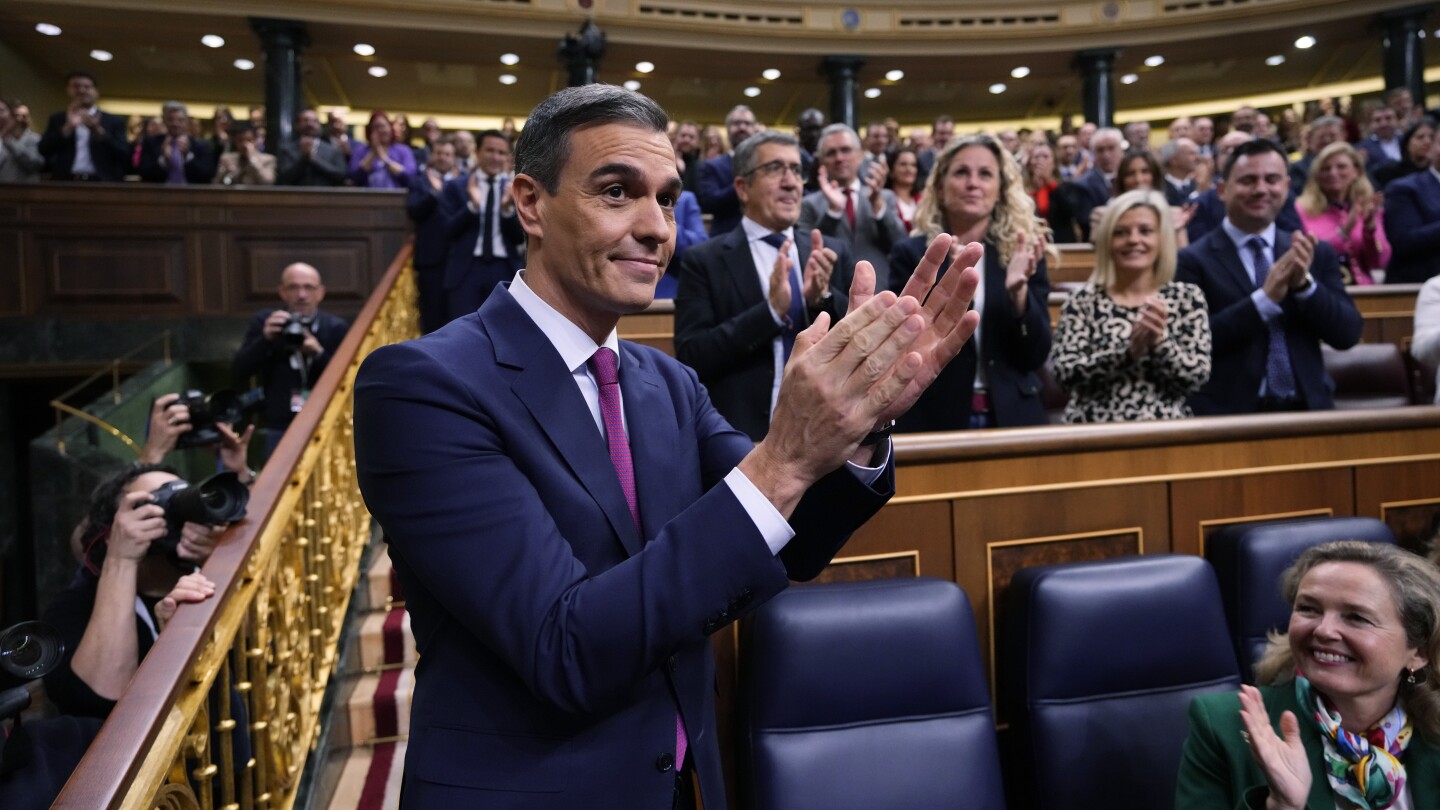MADRID (AP) — Spain’s acting Prime Minister Pedro Sánchez will defend his controversial amnesty deal for Catalonia’s separatists in parliament by midday Wednesday as part of a debate a day before the Socialist leader seeks the endorsement of the chamber to form a new government.
Sánchez has tied up the public support of six smaller parties to ensure that he can reach the absolute majority of 176 deputies voting in favor of reestablishing his minority coalition government with the left-wing Sumar (Joining Forces) party.
Controversy arose after deals were signed with two Catalan separatist parties which included a commitment to pass an amnesty law that would wipe the slate clean for hundreds of Catalan separatists who had run afoul of the law for their roles in the wealthy northeast region’s failed 2017 secession bid. The deals include former Catalan regional president Carles Puigdemont, who is a fugitive from Spanish law after he fled to Belgium six years ago.
If, however, Sánchez, who has been prime minister since 2018 and one of the longest-serving Socialist leaders in Europe, were to lose Thursday’s vote, he would have a second chance on Saturday to win more “yes” than “no” votes.
The amnesty agreement has sparked protests in Madrid and even in Barcelona, the capital of Catalonia. Spain’s opposition conservative and far-right parties accuse Sánchez of betraying the nation for granting the amnesty just to hold onto power. More protests are expected in downtown Madrid where the parliament building is under tight security.
Spain’s judges have heavily criticized the proposed amnesty, calling it an intrusion of the legislative branch into the separation of powers. The European Union is also reviewing the proposed amnesty.
If Sánchez is backed by the 350-member lower chamber, the formation of a new government will end a period of political uncertainty since inconclusive national elections on July 23 left a highly fractured parliament.
Sánchez had to make more concessions to Puigdemont’s Junts (Together) and rival separatist party Republican Left for Catalonia.
The Socialists agreed with Republican Left of Catalonia to relieve millions of euros of debt for the region and to cede it partial control of commuter train services. Sánchez’s party then bent to Puigdemont’s pressure to let Catalonia keep more of its tax revenues, and most contentiously, open talks on the possibility of debating a referendum for independence for Catalonia, but within the limits of the Spanish Constitution.
Sánchez has defended his deals saying that they will help to continue to normalize the political situation in Catalonia and further reduce tensions between Madrid and Barcelona. The separatists’ parties have lost power in recent elections, while Sánchez’s Socialists have surged in Catalonia thanks to his policy of pacifying the Catalans which included pardoning several imprisoned leaders.
The deal also means that Puigdemont’s party has for the first time in nearly a decade dropped its posture of trying to destabilize the Spanish state and, at least for now, and guaranteeing Sánchez remains in power by agreeing to vote with the government on key bills.
___ Associated Press writer Jospeh Wilson reported from Barcelona, Spain.

